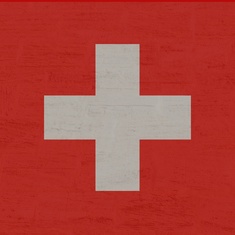
Should Swiss German be considered a different language?
First published: Sunday October 31st, 2021
Report this blog
Is Swiss German it's own language?
I propose that Swiss German be considered a new language to standard German. We consider Luxembourgish and Dutch to be seperate languages from German, but they are far much more similar to German than Swiss German. Swiss German uses different vocabulary, grammar, and pronounciation.
A breif overview of Swiss German
Swiss German is more formally called, "Alemanic German." In French (Which Swiss German has many loan words from), "Alemagne," is Germany. This shows that Swiss German is a mix between French and German. Some other names for Swiss German are, Schweizerdeutsch, Schwitzerdutsch, Schwyzerdutsch, Schwiizertuutisch, Schwitzertitisch, and Mundart. Alemanic German is spoken by about 60% of people and Switzerland, almost all of Liechtenstein, and parts of Austria and Italy. Swiss and standard German are so different that they often cannot communicate.
Some of the bigger differences
When I first started hearing about Swiss German, I assumed that there was just a few different small words that would be interchangable in standard German, but almost every word is pronounced or spelled differently. Instead of saying Hallo, they say, Gruezi, which is a short version of the old German phrase, Ich grusse sie, meaning I greet you. Instead of saying, Ich, Swiss Germans go with, Isch, meaning I. Also, the Swiss do not use the Eszet, they use two 's' instead. Anyway, you get the point, Swiss German is very different from normal German.
So... Is Swiss German it's own language?
No. It has so many differences but it actually just considered German everywhere you look. If anyone is interested in the idea of Swiss German becoming it's own language, tell me in the comments. If you do not, try to give me a good reason why. I will be reasonable and consider all of your comments. Thanks for reading.

Eise Papp am Himmel, gehellegt sief däin Numm. Lëtzebuergesch
Vater unser im Himmel, geheiligt werde dein Name. Standard German
Onze Vader die in de hemelen zijt, uw naam worde geheiligd. Dutch
Vatter im Himmel, mach is dy Name heilig. Swiss German (Basel)
Üse Vatter im Himel, mach, dass dy Name heilig ghalte wird. Swiss German (Bern)
Euise Vater im Himmel, din Name söll gheiliget werde. Swiss German (Zürich)
In Switzerland there is Swiss Standard German which is exactly like german and several dialects of the alemannic dialect group. The thing with it being a mix of french and german is
I can see your point, but I wouldn't single out swiss german from other german (or continental-germanic (with dutch etc.) dialects.
Interesting Blog! Subscribed.
I hope my criticism wasn't too long or boring.